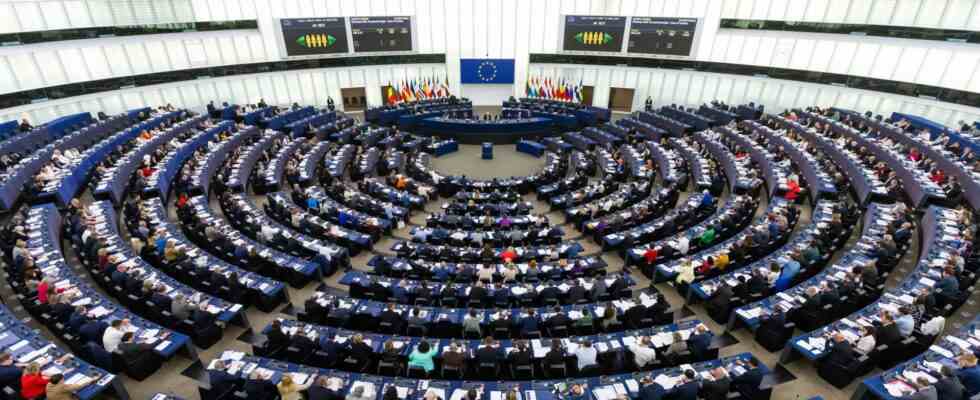Status: 01/18/2023 03:26 am
After the corruption scandal surrounding former Vice President Kaili, the EU Parliament elects a successor. Meanwhile, the debate over lobby control continues. There are many ideas for reform, but some parliamentarians see no need for them.
The European Parliament draws further conclusions from the corruption scandal known as “Qatargate”. It is likely that at noon the Luxembourg Social Democrat Marc Angel will be elected to succeed former Vice President Eva Kaili, who is considered one of the key figures in this affair and has been in custody since the end of last year.
In addition, the debate about possible and necessary anti-corruption reforms is in full swing. Because in Parliament, the anger about the alleged attempts at bribery from abroad is still huge. “The illegal and unacceptable behavior of individuals has destroyed a lot of trust and thus harmed everyone,” says Slovak Christian Democrat Vladimir Belcik, but at the same time is convinced that “the European parliament can deal with the problems that a few bad apples have caused. “
Other members of parliament also see the affair as an opportunity to ensure stricter lobbying rules and more transparency. For example, the Dutch social democrat Lara Wolters: “There is also a silver lining in these dark clouds, because now we can really take a big step towards an open and trustworthy parliament.”
Numerous ideas for reforms
There are enough ideas now. For example, that parliamentarians should disclose all meetings with third parties. Or that representatives from countries outside the EU have to register if they want to contact MPs. After all, as the reasoning goes, countries are also “lobbies” that have their own interests. The Greens are also demanding a special committee to investigate the scandal and make proposals for reform. “Because we love this house and want to protect it, we have to do everything we can, and do it now,” said Green Party leader Terry Reintke.
However, not all MEPs consider far-reaching reforms to be necessary. The CSU European politician Angelika Niebler says she does not know of any parliament that is as transparent as the European one. That’s why there isn’t that much catching up to do. New rules would not have prevented the current scandal either. According to the chairman of the CDU/CSU group, Daniel Caspary, freely elected MPs need freedom. For example, the opportunity to have confidential conversations. If parliamentarians had to disclose all meetings, they would no longer receive certain information.
Independent control requested
Green anti-corruption expert Daniel Freund sees things differently: “We discussed comprehensive reforms in December – and now the first are starting to say: ‘Oh, we’re not going to do that now, that’s going too far.’ But we need disclosure of assets, we need disclosure of all meetings with lobbyists, we finally need effective protection for whistleblowers and, above all, we need independent control of the rules.”
EU Interior Commissioner Ylva Johansson wants to propose a European anti-corruption law soon. With EU-wide uniform penalties and a common definition of what is understood as corruption. She too is convinced that the European Union can solve the current problems. The EU has dealt with Covid, it is in the process of dealing with the war and of course it can also deal with corruption and “root it out wherever you find it”.
Katargate: EU Parliament discusses consequences and elects Kaili successor
Stephan Ueberbach, SWR currently Strasbourg, 17.1.2023 11:58 p.m

